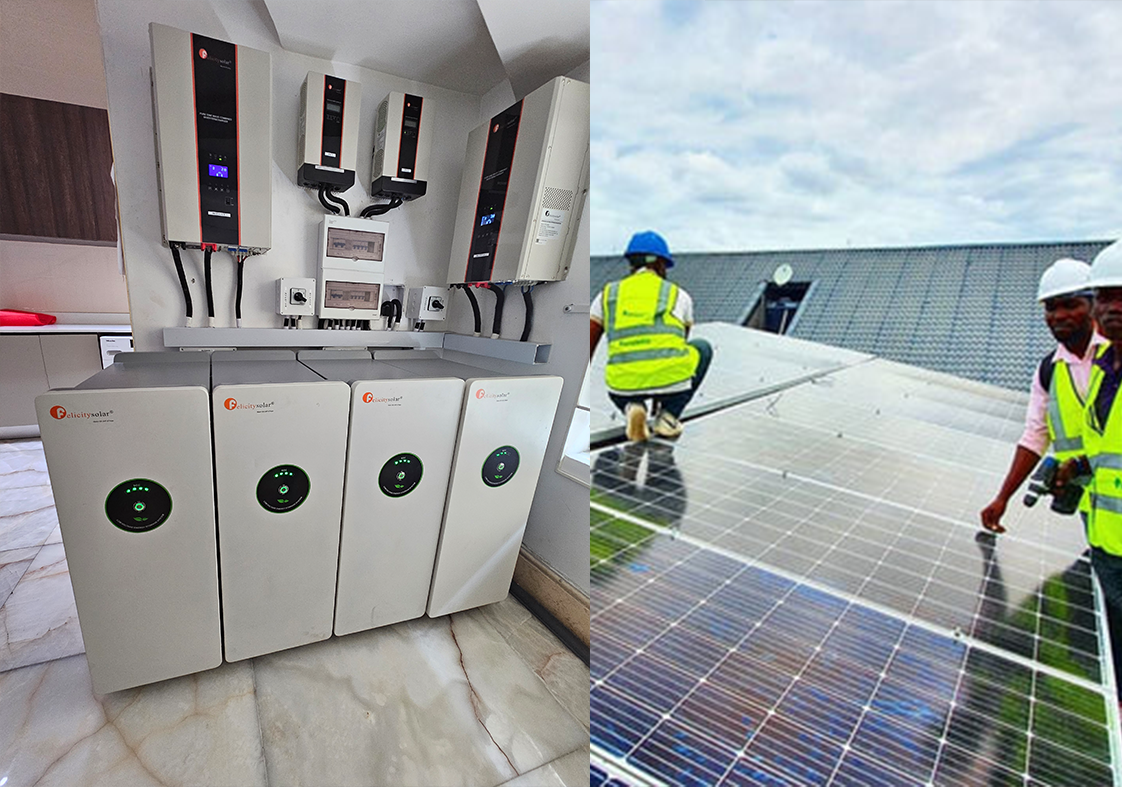Nigeria, with its abundant sunshine, is a prime location for harnessing solar energy.
As the cost of solar panels continues to decrease and the reliability of solar technology improves, more and more Nigerians are considering solar power as a viable alternative to the unreliable and expensive national grid.
One of the most critical components of any solar power system is the solar inverter.
In this comprehensive guide, we will explore the world of solar inverters, focusing on their importance, types, benefits, and how to choose the right one for your needs in Nigeria.
What is a Solar Inverter?
A solar inverter is a crucial piece of equipment that converts the direct current (DC) electricity generated by solar panels into alternating current (AC) electricity, which is the type of electricity used in homes and businesses.
This conversion is important, because most appliances and electrical devices run on AC power.
Solar inverters play a crucial role in harnessing solar energy effectively. Their primary function is to convert the direct current (DC) electricity generated by solar panels into alternating current (AC) electricity, which is the standard form used in homes and businesses. This conversion process enables the seamless integration of solar power into our daily lives, powering our appliances and devices.
Furthermore, in grid-tied solar systems, inverters facilitate the bidirectional flow of electricity. This means that any excess solar energy generated can be fed back into the national grid. This interaction with the grid not only helps to offset electricity costs but can also potentially generate credits or income for the system owner.
For systems with battery storage, such as off-grid or hybrid setups, the inverter takes on additional responsibilities. It intelligently manages the charging and discharging of the batteries, ensuring a consistent power supply even during periods of low sunlight or at night.
In addition to these core functions, modern solar inverters often come equipped with sophisticated monitoring capabilities. These features allow users to track their solar energy production, monitor consumption patterns, and gain valuable insights into the overall performance of their solar system.
This data can be used to optimize energy usage, identify potential issues, and maximize the benefits of solar power.
Types of Solar Inverters
There are several types of solar inverters available, each with its advantages and applications:
- String Inverters: These are the most common type of inverter for residential and small commercial solar systems. They are cost-effective and reliable, but their efficiency can be affected by shading or panel mismatch.
- Microinverters: These are small inverters attached to individual solar panels. They offer greater efficiency in shaded conditions and panel-level monitoring but are generally more expensive.
- Power Optimizers: These are similar to microinverters but are less expensive. They optimize power output at the panel level but don’t convert DC to AC at each panel.
- Hybrid Inverters: These inverters are designed for battery-based solar systems. They can manage both grid-tied and off-grid operations, providing backup power during outages.
- Central Inverters: These are large inverters used in commercial and utility-scale solar installations. They are highly efficient but require specialized installation and maintenance.
Benefits of Solar Inverters in Nigeria
- Reliable Power Supply: Solar inverters, especially in off-grid or hybrid systems, provide a reliable source of electricity, reducing dependence on the unreliable national grid.
- Cost Savings: By generating your own electricity, you can significantly reduce your electricity bills over time.
- Environmental Sustainability: Solar energy is a clean and renewable energy source, helping to reduce carbon emissions and protect the environment.
- Increased Property Value: Installing a solar power system with a quality inverter can increase the value of your property.
- Energy Independence: Solar inverters empower you to take control of your energy production and consumption.
Choosing the Right Solar Inverter for Your Needs
Selecting the right solar inverter is crucial for the optimal performance and efficiency of your solar power system. Here are some key factors to consider:
- System Size: The size of your solar panel array will determine the required inverter capacity.
- Grid-Tied or Off-Grid: Choose an inverter type that matches your system configuration (grid-tied, off-grid, or hybrid).
- Battery Compatibility: If you plan to use batteries, ensure the inverter is compatible with your chosen battery type.
- Efficiency: Look for inverters with high-efficiency ratings to maximize energy production.
- Monitoring and Control: Consider the inverter’s monitoring and control features for easy system management.
- Warranty and Support: Choose a reputable brand with a good warranty and local support.
Solar Inverter Installation and Maintenance
Solar inverter installation should be done by a qualified and experienced solar installer. Proper installation is crucial for safety and optimal system performance. Regular maintenance, including cleaning and inspections, is essential to ensure the inverter’s longevity and efficiency.
The Future of Solar Inverters in Nigeria
The future of solar inverters in Nigeria is bright. As technology advances, we can expect to see even more efficient, intelligent, and affordable inverters entering the market. With the increasing adoption of solar power, Nigeria has the potential to become a leader in renewable energy, powering homes, businesses, and communities with clean, sustainable electricity.
Conclusion
Solar inverters are the unsung heroes of solar power systems. They enable the conversion of sunlight into usable electricity for homes and businesses.
In Nigeria, where the sun shines abundantly, solar inverters offer a pathway to energy independence, cost savings, and environmental sustainability.
By understanding the different types of inverters, their benefits, and how to choose the right one for your needs, you can harness the sun’s power and secure a brighter energy future for yourself and your community.

